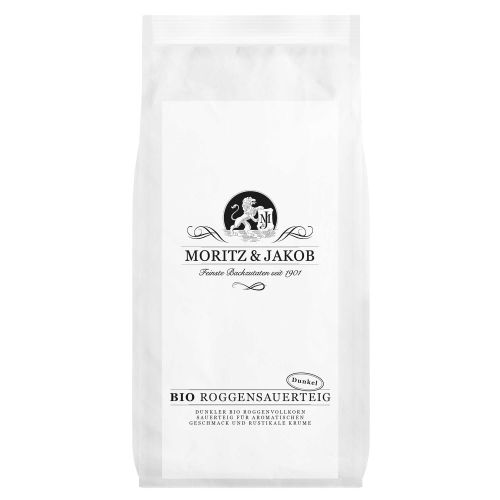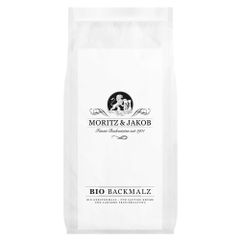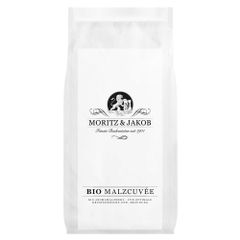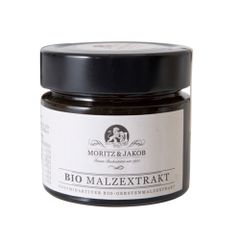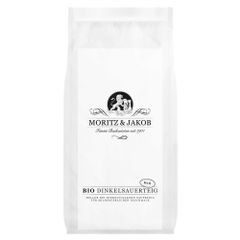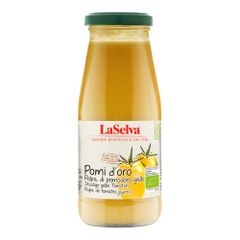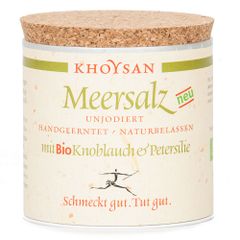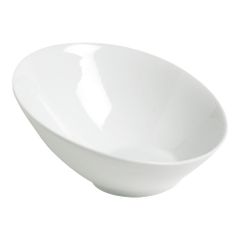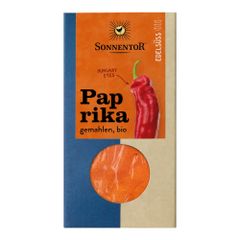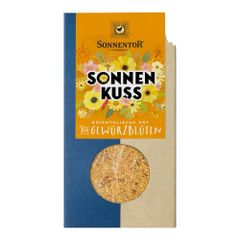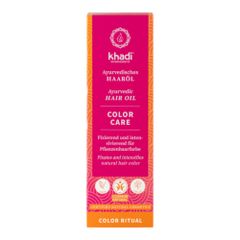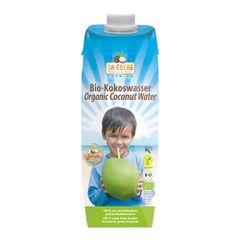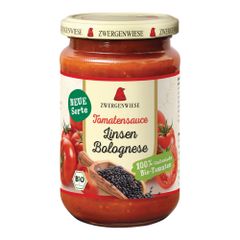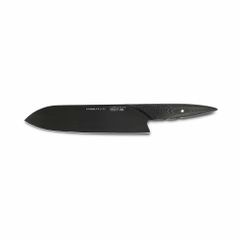Product Details
Description
Sourdoughs fulfill a variety of functions in baked goods. In addition to the flavor provided by the long ripening process, a fresh-keeping function due to the long swelling and the partial breakdown of starch and secondary plant substances is also crucial for good bread. However, the most important function that makes the actual production of rye bread possible is the formation of acid (lactic and acetic acid). It also gives sourdough its name. The enzymes naturally contained in rye dough would break down the starch to such an extent that stable bread could no longer be produced. The acids in the sourdough prevent this. For even more flavor, Moritz and Jakob organic sourdough is cooked in a unique process, giving it a pleasant brown color and an intense rye flavor. By gently drying the sourdough after the cooking process, you get a dried sourdough that has taste, freshness, baking-effective acidity and a natural crumb color. Organic sourdough made from organic wholemeal rye flour is suitable for dark organic rye (wholemeal) breads and mixed breads.
More Information
| SKU | ATAASB003 |
|---|---|
| Manufacturer | Moritz und Jakob |
| Herstellerangaben | Stamag Stadlauer Malzfabrik GesmbH, Smolagasse 1, 1220, Wien, moritzundjakob@stamag.at |
| Totalweight in kg | 0.250000 |
| Country | Austria |
| Shipping restriction to | No country selected |
| Best before date | 15 Oct 2026 |
| EAN Code | 9005856040409 |
| Product amount | 250g |
| Ingredients list | Organic whole grain rye flour, water |
| Instruction manual / Tip | Application and dosage: as desired; Recommendation: approx. 100g for 1kg of flour with mixed bread; approx. 200g for 1kg of flour for rye bread; approx. 50 degrees of acidity. *mixed rye bread* *Ingredients for a rectangular baking pan (length 28 cm):* - 270 g organic rye flour type 960 - 150 g organic wheat flour Type 700 universal - 80 g organic whole grain rye sourdough - 13g salt - 9 g organic dry yeast (or 21 g organic fresh yeast) - 5 g organic bread seasoning - approx. 350 ml lukewarm water *Preparation:* Put all the ingredients in a bowl and knead with a dough hook for about 10 minutes Knead into a smooth dough in the middle gear of the food processor. Sprinkle the dough with a little flour and cover with a kitchen towel for about 30 minutes Cover and leave to rest in a warm place (25 - 30 °C). Then the Form the dough into an oblong loaf using as little flour as possible Place a greased loaf pan and cover it with a little flour sprinkled on top Let rise in a warm place for another 40 – 50 minutes. The dough should be ready rise so that it protrudes a little over the edge of the mold. In the meantime, heat the oven to 220 – 230 °C (fan oven 210 °C) preheat. For a sufficiently moist baking atmosphere, use a fireproof one Place a bowl of water at the bottom of the baking space. Gently brush the surface of the risen bread with water and if desired with flour or another topping (e.g. oat flakes, Sprinkle linseed, sesame seeds. Then put the bread in the oven on the middle rack and leave it on Bake at 220 – 230 °C (fan oven 210 °C) for 10 minutes. Then increase the temperature Reduce to 200 °C (fan oven 180 °C) and bake for another 40-45 minutes (Total baking time 50 – 55 minutes). After baking, turn the baked bread out of the mold and open it Allow to cool on a rack. Preparation in the bread maker: *Ingredients for a baking pan:* - 270 g organic rye flour type 960 - 150 g organic wheat flour Type 700 universal - 80 g organic whole grain rye sourdough - 13g salt - 9 g organic dry yeast (or 21 g organic fresh yeast) - 5 g organic bread seasoning - 350 ml lukewarm water *Preparation:* Put all ingredients in the bread maker. The Processing takes place using the normal baking process. The instructions of the The device manufacturer's instructions regarding the operation and safety of the device must be observed. |
| Storage advice | Store away from heat and in a dry place. |
| Allergen information | A - contains gluten-containing cereals |
| Additional allergen marking | Hergestellt in einem Betrieb, in dem auch Soja, Milch, Sesam und Lupine verarbeitet werden. |
| Nutritional labeling | Nutritional labeling as follows |
| Nutritional information reference amount | 100 g |
| Calorific value in kj | 1431 |
| Calorific value in kcal | 342 |
| Fat in g | 1 |
| Thereof saturated fatty acids in g | 0.2 |
| Carbohydrates in g | 64.2 |
| Thereof sugar in g | 4.1 |
| Protein in g | 8.9 |
| Salt in g | 0 |
| Dietary fiber in g | 14.1 |
| Product feature | bio, Plastic-reduced packaging |

